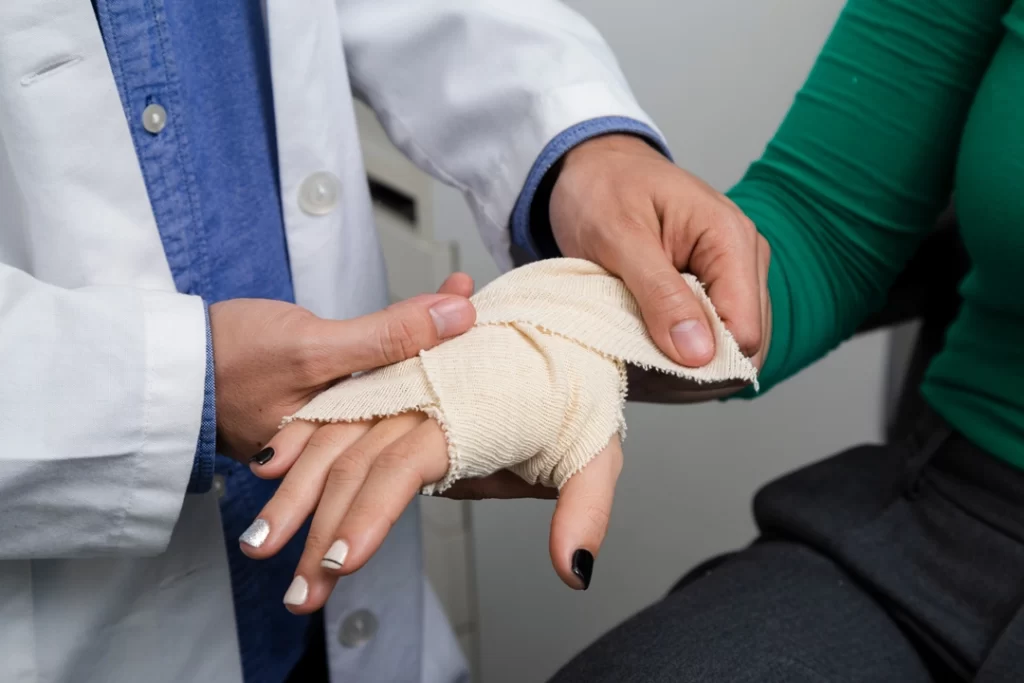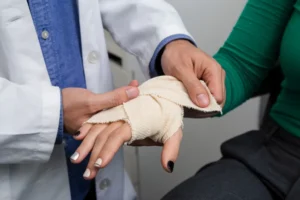A broken hand is a common injury that can occur from a fall, direct impact, or overuse. The bones in the hand are relatively small and delicate, making them more susceptible to fracture. Symptoms of a broken hand can include pain, swelling, deformity, bruising, and difficulty moving the fingers or wrist.
Diagnosis
If you think you have broken your hand, it is important to see a doctor right away. They will examine your hand and take X-rays to confirm the diagnosis. In some cases, an MRI or CT scan may also be ordered to get a more detailed look at the bones and surrounding tissues.
Treatment
The treatment for a broken hand will depend on the severity of the fracture. In some cases, a simple splint or cast may be all that is needed to keep the bones in place while they heal. In more severe cases, surgery may be necessary to repair the broken bones.
Splints and Casts
A splint or cast is a hard or rigid covering that is applied to the hand or wrist to keep the bones in place while they heal. Splints are typically used for minor fractures, while casts are used for more severe fractures. Splints and casts are usually worn for several weeks, and your doctor will schedule follow-up appointments to monitor the healing process.
Surgery
If your fracture is severe, your doctor may recommend surgery to repair the broken bones. Surgery is usually performed under general anaesthesia and involves using wires, pins, plates, or screws to hold the bones in place while they heal. In some cases, bone grafts may also be used to help heal the fracture.
Recovery
The recovery time for a broken hand will vary depending on the severity of the fracture. In general, it takes several weeks for the bones to heal completely. During this time, it is important to rest your hand and avoid activities that could put stress on the fracture. Your doctor may also recommend physical therapy to help you regain range of motion and strength in your hand.
Prevention
There are a few things you can do to help prevent a broken hand:
- Wear protective gear when participating in sports or activities that put your hands at risk of injury.
- Be careful when walking or climbing on uneven surfaces.
- Be aware of your surroundings and avoid tripping or falling.
- Strengthen the muscles in your hands and wrists with regular exercise.
If you have any questions about broken hands, please talk to your doctor. They can provide you with more personalized information about diagnosis, treatment, and prevention.








